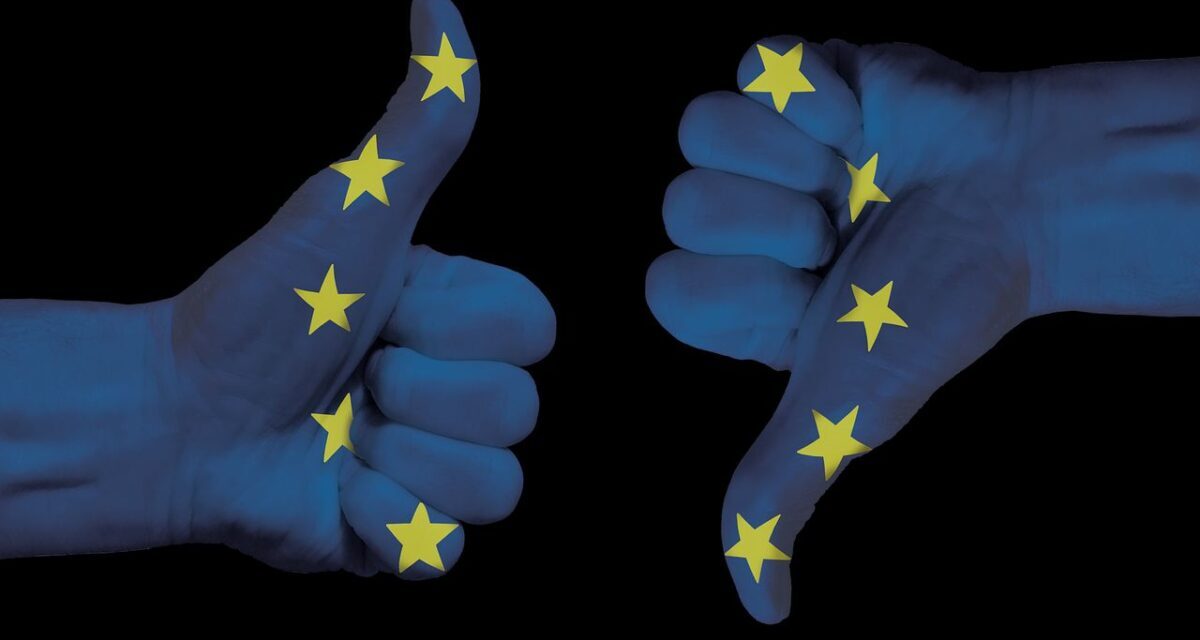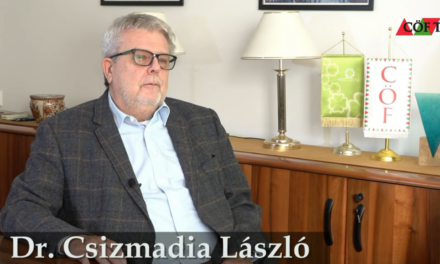Europe was left in ruins by the Second World War, and it had to be rebuilt, but the generation that survived the war, especially in the countries hit hard by the war, stretched their strength and restored the economy within a decade, and the rapid economic growth was maintained in the following decades.
The average economic growth of the western half of Europe reached 5.3 percent per year for more than two decades, until the first oil price explosion in 1973. What this means is clearly shown by the fact that the European population, which was almost starving after the war, was not only well-fed by the 1970s, but drove cars, some with Fiats, some with Citroën, and some with Volkswagens or perhaps Mercedes.
European prosperity, i.e. the fact that a relatively broad social class shared in the goods,
it was founded by the so-called European social market economy model, which was a generally accepted economic and social political concept after the war, but which many people associate with the name of the German chancellor Ludwig Erhardt.
Ludwig Erhardt was Konrad Adenauer's Minister of Economy between 1949 and 1963, and then became Chancellor of Germany. He is credited with the German economic miracle, during which the country in ruins not only became the leading economic power in Europe and the world in two decades, but was also able to provide a high standard of living to broad social strata, which set an example not only for Europe, but also for the entire world.
Erhardt resisted with all his might the liberal economic views that were still tempting at the time: "I am not willing to accept the orthodox rules of the market economy without reservation and at every stage of development... It was this falsely interpreted freedom that brought freedom and the blessed liberal system to the grave," he said at the time .
His book "Prosperity for all" can still be purchased today, perhaps it would not hurt to send a copy to the leaders of the European Union as a Christmas present.
Erhard's perception was common in the post-war generation of politicians, which was theoretically based on the economic views of John Maynard Keynes. After the great economic crisis of the 1930s, Keynes pointed out the role of the state in promoting economic stability and development. His views became dominant in Europe (and partly in America) until the 1973 oil price explosion.
The crude oil price explosion, the root cause of which was the Arab-Israeli war and the subsequent Arab oil embargo, caused a significant economic downturn for the European Economic Community. Inflation skyrocketed, hovering around ten percent a year for a decade, while economic growth dropped from the 5-5.5 percent characteristic of the previous quarter-century to 2 percent. Inflation could not be contained with the previous Keynesian tools, and this is when liberal economic principles came to the fore, and this is when the Western world switched to neoliberal economic policy.
Neoliberal economists claimed that the cause of all problems was economic intervention by the state, so this should be dismantled.
In other words, state property must be privatized, previous regulations, such as laws to curb financial speculation, must be abolished, and foreign trade barriers, especially those before the movement of capital, must be abolished.
Privatization, deregulation, and liberalization were the guiding principles of the new (neoliberal) economic policy.
Previously, bank interest rates were regulated, they had a mandatory upper limit (about 6–7 percent), this has now been abolished, interest rates jumped to 10–15 percent, which managed to put inflation on a downward path (it decreased to 4 percent in seven years), but the countries that had previously borrowed (for example, Hungary) fell into a debt trap. The debt trap meant that even though previously indebted countries had already achieved a significant export surplus, they had to take out new loans to finance the income flowing out due to huge interest rates, so their debt continued to grow.
Deregulation, the abolition of previous regulations (especially in the financial sector), led to huge speculations not seen since the bank failure of 1929 and caused recurring financial crises from the 1990s onwards. The IFR financial news portal lists eight major financial crises since the neoliberal deregulation, of which the one in 2007-2008 strongly affected our country and greatly contributed to the downfall of the government at the time.
As a result of neoliberal deregulation and a significant reduction in the progressivity of personal income taxes, income and wealth inequalities have increased significantly.
In a recent analysis by the venerable American Brookings Institution, it was shown that the incomes of the top 10 percent have grown strongly over the past forty years, while those in the bottom 50 percent have suffered particularly large losses. The increase in inequality has been accompanied by the erosion of the middle class and a decrease in intergenerational mobility. Growing inequalities and the anxieties they cause fuel social discontent, and an increasingly unequal society weakens trust in public institutions and can thus undermine democratic governance.
Growing global inequalities can also threaten geopolitical stability.
The neoliberal turn occurred in the European Union at the end of the 1980s and can largely be linked to the Maastricht Treaty. This contract also served to create the conditions for the introduction of the euro. However, with the introduction of the euro, the less competitive southern countries, above all Greece, Italy, and Spain, became heavily indebted, their development slowed down or even stopped, and their catch-up with the more developed regions (the northern part of the union) came to a halt.
The problems are compounded by the irrational climate policy of the European Union.
Under pressure from the German Greens, the Union set goals that are unachievable. These include, among others, reducing carbon dioxide emissions to zero by 2050, switching the heating of apartments to renewable energy, banning the production of gasoline and diesel-powered cars and then withdrawing them from circulation, ensuring energy supply with wind and solar energy.
These measures have already sent the European economy to the ground, especially the German industry, whose production has decreased by 5 percent since 2015, while the industry of the developed Nordic and former socialist countries has increased by 20-50 percent (Denmark 31 percent, Sweden 16 percent, Poland 50 percent, Hungary 26 percent). Germany also dragged down the industry of France, which is closely related to it (2 percent decrease), and together, due to their economic weight, they are hindering the development of the Union as a whole. All of this also affects GDP growth, which reached an average rate of only 1.7 percent in the given period.
The growth opportunities of countries are generally characterized by the fact that less developed countries can grow faster than more developed ones.
The more developed ones are the pioneers, they develop newer and newer, at the same time more productive technologies with significant expenditures, which can then be adopted by the less developed ones without special expenditures and thus the resources necessary for the development of the technology can be used for the development of the economy.
Since the countries of the European Union are generally more underdeveloped than the United States, one might assume that the Union can develop faster than America. This was the case in the decades after the war. Up until the Maastricht Treaty, the economic growth of the Union exceeded that of the United States by 0.8 percentage points, but since then it has fallen behind it by 0.6 percentage points, which clearly shows the fundamentally flawed - ideologically driven - economic policy of Brussels.
Of course, many people see this clearly, including German industrial leaders and parties called extremist by the mainstream, such as the German Alternative for Germany (AfD).
However, although their popularity is growing, these parties are still in the minority in some countries of the Union. However, due to the irrationality of Brussels, it may easily happen that the parties defending real national and European interests and values will achieve considerable success in next year's elections. Writers must help them to convince as many European citizens as possible: there is an alternative to the current irrationality for Europe.
Károly Lóránt: The interests of Europe - The great transformation Part 1
The author is an economist and a consultant to the National Forum
Cover image source: pixabay.com












